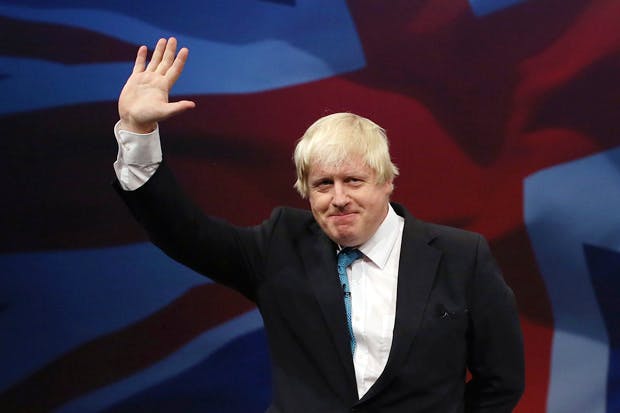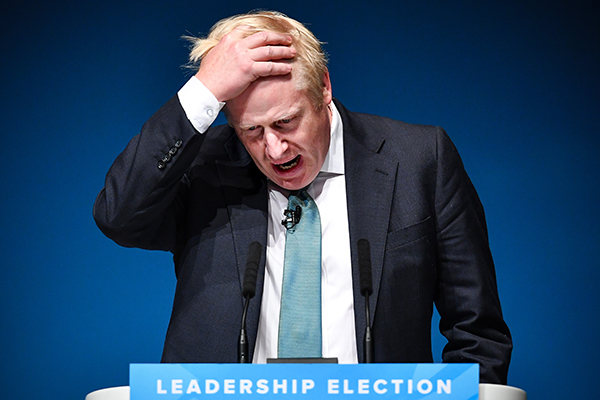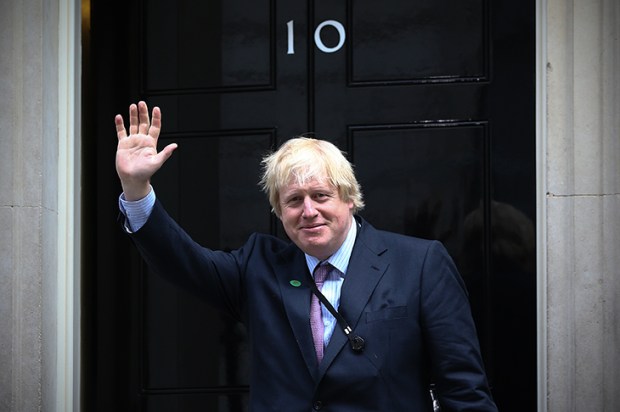Most MPs greet the parliamentary recess with a sense of relief. But Conservatives are welcoming this Easter break like the bell at the end of a boxing match. They are exhausted, tempers must be cooled and they now have a fortnight to think about how best to stop their split over the EU referendum becoming something more permanent and debilitating.
Some in the party have long hated their own colleagues more than anyone else ,and they have taken full advantage of the excuse the referendum offers for verbal violence. As one Cabinet minister admits: ‘The extreme 10 per cent on either side of the Tory party absolutely loathe each other.’ At times it has seemed like a bar room brawl in which decade-old scores are settled.
In the past week or so David Cameron has been doing what he can to calm things down. In the Commons chamber he has struck a very different tone — respectful when questioned by Eurosceptic Tory MPs and emphasising that he wants a civilised debate. This stands in sharp contrast to his ill-considered personal jibes against Boris Johnson at the start of the campaign and his tart response to Iain Duncan Smith’s resignation letter. But this new conciliatory tone might not last long. One loyalist minister predicts: ‘When the vote gets closer it will be like a war zone.’
If Cameron’s side lose the referendum, he will have to leave No. 10 sooner rather than later — a prospect which is focusing Tory minds. But whatever the result, the Brexit debate and the Tory succession are now inextricably linked. Under the party’s rules, MPs nominate two candidates to go forward to a vote of party members — who will, most likely, have backed ‘out’ by a margin of two to one. This is why Boris Johnson is now firm favourite to succeed Cameron.
But being out in front in the early stages of the Tory steeplechase is no guarantee of success. They are a curious tribe and their leadership campaigns follow a pattern. A frontrunner emerges and then a stop-the-frontrunner campaign begins. John Major was the ‘Stop Heseltine’ candidate, William Hague the ‘Stop Ken Clarke’ candidate, and Iain Duncan Smith the ‘Stop Portillo and Clarke’ candidate. The ‘Stop Boris’ attacks have already started, with my Spectator colleague Matthew Parris leading the charge.
That the first blast came from Parris, who wrote a column for Johnson when he edited this magazine, demonstrates not only the place The Spectator occupies in our public life but also the slightly incestuous feel of our current politics. His article didn’t bother with policy disagreements; it was a straightforward character assassination. Why so personal? Because, besides the referendum, there isn’t much difference between Johnson, Cameron, George Osborne and Parris (himself a former Tory MP): they are all liberal, one-nation Tories. The main players in the party are separated not by creed but by their personal style.
As Cameron delighted in pointing out after the Conservative party conference last year, Osborne and Johnson’s speeches were advocating the same ideological direction. Both emphasised the need for the Tories to be inclusive. Both sought to concentrate on winning over the low-income voters who had given up on Labour because it had given up on them. The Chancellor and the Mayor of London agree on the strategy, on the direction and most of the policy details. This means it has to become personal.
The danger for Johnson’s critics in going after him so early is that their allegations will have lost the power to shock by the time the leadership campaign actually starts. Also, today’s Tory party is not as morally censorious as it once was. It is by no means guaranteed that its members will want to sit in judgment on Johnson’s private life.
What is not clear is who the ‘stop Boris’ candidate will be. For a long time George Osborne was Cameron’s heir presumptive. But the Chancellor’s political stock is low and it will take him time to recover from Iain Duncan Smith’s assault on his last Budget and his whole approach to deficit reduction. Osborne is quite good at rebounding after bungled Budgets, but he’ll find it more difficult this time than in 2012. The economy is unlikely to outperform expectations over the next few years and reinventing yourself a second time is far harder.
Stephen Crabb, the new Welfare Secretary, currently intrigues those looking for a new Boris-blocker. Crabb’s life story, which is in stark contrast to Cameron’s, is part of his appeal. His mother, who had left his abusive father, raised him in a Welsh council house. As Welsh Secretary, Crabb was sure-footed. He has few enemies in the party and some important admirers, notably the Scottish Tory leader Ruth Davidson. The fact that he is a devout Christian also gives him reach into surprising places; old E-tonians and evangelical Christians often benefit from personal connections inside the parliamentary party that can trump the usual internal divisions.
But Crabb remains relatively untested. As he has admitted, it’s quite a leap going from Secretary of State for Wales to Welfare Secretary. He might also find the fact that he voted against gay marriage an obstacle. Then there is the question of whether he has the charisma necessary to beat Johnson among the Tory membership, especially as he is all for remaining in the EU. Indeed, one wonders if the most effective ‘Stop Boris’ candidate might be someone from the same side as most Conservative MPs on the European question.
The next three months will pit Tory against Tory and there’s nothing Downing Street can do to stop it. Rationally, both sides should wish to make sure the damage and divisions this creates are only temporary. But Conservative passions have a habit of spiralling out of control very quickly over the EU. This bitter contest could release as much poison as the political assassination of Margaret Thatcher. And if that happens, the danger is that neither the ‘inners’ nor the ‘outers’ will make a full recovery.
Got something to add? Join the discussion and comment below.
Get 10 issues for just $10
Subscribe to The Spectator Australia today for the next 10 magazine issues, plus full online access, for just $10.














Comments
Don't miss out
Join the conversation with other Spectator Australia readers. Subscribe to leave a comment.
SUBSCRIBEAlready a subscriber? Log in